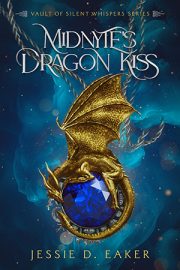SF/F Magazines Wait Out The Great Pause—Part 1: Submissions & Supplies
by J. Scott Coatsworth
I was in the annual SFWA business meeting a few weeks ago when someone asked how SF/F magazines were faring through the COVID-19 crisis. SFWA President Mary Robinette Kowal asked for a volunteer to check things out. I raised my hand, and when SFWA gave me the go-ahead, I sat down and formulated a few questions to send to a number of SF/F magazines.
Amazing Stories, Analog, Asimov’s, Beneath Ceaseless Skies, Clarkesworld, Escape Artists, Fantasy & Science Fiction, Fireside Magazine, FIYAH Literary Magazine, and Strange Horizons all responded to my request. Note: most of these responses were received before the current Black Lives Matter protests around the US.
Here’s what they said.
What, if any, changes have publishers seen to submissions since the COVID-19 lockdowns started?
Not surprisingly, given that so many of us have been stuck at home for months, people have had more time to write, and submissions have been up almost across the board (more on that in a bit). In a development that will likely surprise no one, pandemic stories have been coming in at a steady pace.
“Submissions to Beneath Ceaseless Skies (BCS) are up 20% since March, tied with our highest levels ever,” BCS Editor-in-Chief and Publisher Scott M. Andrews said.
I’ve noticed this trend too in the most writerly way possible—responses to my submissions seem slower than usual, and Asimov’s, which normally rejects me in a day, took a full week the last time around.
Asimov’s editor Sheila Williams confirmed this, noting that “[s]ubmissions have increased slightly,” while Pablo Defendini, Fireside publisher, says it’s “unclear, for us, for now. Our last submissions period was in April, and we didn’t see much change from previous submissions periods.”
Clarkesworld is also reporting a spike after an initial drop, and Publisher and Editor-in-Chief Neil Clarke goes into great detail about the changes in the magazine’s slush pile, if you want to know more.
Trevor Quachri, editor at Analog, concurs. “There was a small dip in submissions right at the beginning of the lockdowns—say, a 10% reduction—but it seems to have recouped pretty quickly.”
Marguerite Kenner, the co-owner of Escape Artists (EA), also noted an uptick in submissions. “Escape Pod had record participation in its flash fiction contest submissions, which were open in early April,” she said. “But it’s difficult to know whether that’s to be attributed to its recent Hugo [Award] nomination, the fact the contest only happens every other year, or COVID-19.”
It’s not a consistent bump, though. Magazine of Fantasy & Science Fiction’s (F&SF) editor C.C. Finlay noted how the most quantifiable difference in submissions has to do with irregularity. “Before this started, we received a very consistent flow of submissions, about 41 a day, with some days a little higher and others a little lower,” he said. “But there was a low range. Now the average number seems to stay about the same, at 41, but some days it drops down into the high 20s, and other days it’s over 50.”
Amazing Stories editor Ira Nayman has seen a bit of a drop in submissions. “This is a bit surprising, given that a lot of people have more time on their hands,” Nayman said. “On the other hand, a lot of people are depressed by the circumstances and unable to do much creative work. It’s hard to generalize, of course; there are other factors that may be more important.”
In addition to seeing changes in submission patterns—“[I]n poetry our submissions volume has approximately been double what’s normal for the last three-ish months,” Romie Stott, Strange Horizons’s (SH) poetry editor, shared—people are also generally being kinder.
“More people have mentioned in their cover letters that they hope we’re doing ok. People have also been very likely to reply to responses with thank-you notes,” Stott said. “I worried that people would take rejections harder, even though we have always gone out of our way to make them gentle, but instead it’s seemed like people are reassured that there’s still a community, and that they’re part of it.”
Andrews also noted a high percentage of first-time submitters. Finlay has noticed this too.
“I have the impression that there are more first-time writers in the queue,” Finlay says. “Professional full-time writers seem to be submitting at about the same rates, writers with other professions (especially those in essential industries like healthcare) seem to be submitting less, and other people and students working from home seem to be writing more.”
And on the hot topic front, Catherine Krahe, fiction editor at SH, says “We recently received our first ‘definitely about COVID’ submission (and I owe the [First Reader] who read it a treat).”
Rasha Abdulhadi, another fiction editor at SH, has “definitely noticed more infectious disease showing up in stories as we got into the late March and April subs.” Clarke concurs that “pandemic stories are ruling the day.”
Clarke also flagged another trend… a rise in plagiarism.
One area of submissions that does seem to be down? Reviews. Maureen Kincaid, SH senior reviews editor, said, “We’ve received fewer unsolicited reviews during this period. I suspect this is in part because a significant proportion of such reviews come from students who, for whatever reason, have been tasked with getting a review published… Reviewers are being slower in getting reviews and edits back to us, apologetically so, and explicitly referencing quarantine issues of one sort or another. Some have specifically said they find it hard to read at the moment. We’re stressing that personal care comes first, every time, and we’re happy to wait for reviews.”
She’s also seeing publishers adapt to the lockdowns, as “some bigger publishers are starting to send out eARCs without requiring us to go via NetGalley, which makes life simpler. I’ve also had emails from publishing people mentioning they’re on furlough for varying periods of time. I have not been soliciting review copies because I’ve no idea who, if anyone, is in the office.”
Also slower? Article subs. “Submissions (more like queries and subs) are still coming in, albeit slower than before,” said Joyce Chng, SH articles editor. “My columns’ writer is unable to submit on time simply because of the lockdown in their country. It’s not easy to write when you are literally indoors with family members.”
Are publishers having any difficulty getting needed supplies, talent, or other business needs during the crisis?
Like the virus itself, its impacts on SF/F magazines are varied and at times surprising. Most of them seem to be centered on printing and shipping, as lockdowns have scrambled normal supply chains, while entirely online magazines have seen little issue with supplies.
Kenner noted that “collaborations this year for Escape Pod’s fifteenth anniversary haven’t had their releases impacted (fingers crossed). Our publications have been digital-only since inception; physical supply chains aren’t an issue we face.”
BCS noted the same thing.
For magazines with print editions, there have been issues. Quachri flagged the loss of sales outlets as an issue. “Bookstores closed, of course, but digital issues and subscriptions have been largely unaffected,” Quachri said. “As long as there’s no outbreak anywhere vital to our functioning (the printer, the digital conversion house) and the President doesn’t decide to hobble the post office to spite Jeff Bezos, we should be okay.”
Asimov’s has been busy figuring out workarounds around bottlenecks, while Clarke notes that “[p]rinting and shipping are very slow, causing a lag in our normal schedule for delivery. Fortunately, readers have been understanding, and print makes up a very small percentage of our revenue.”
Finlay said F&SF has run into issues at the other end of the supply chain, noting how disruptions in the printing and distribution chains resulted in the May/June issue printing and shipping late. “We’re more than halfway through the month, and many of our subscribers are just getting their copies now or are still waiting,” he said. “There is a possibility that the July/Aug issue will also ship late.”
Bookstore closures also mean that about a quarter of F&SF’s usual print sales have evaporated for the near future, which also means fewer new readers, for now.
Defendini has also seen some print issues, as their printer in Canada “had to re-work some of their operations to account for physical distancing practices, which resulted in a small delay in production, and a scramble on our end to adjust.”
On the other hand, Nayman says Amazing Stories has had no supply difficulties.
Finlay also flagged another thing that’s in short supply for magazines like his. “The biggest disruption seems to be sustained concentration,” he observed. “Me and many of the freelancers I’m working with report that there are fewer useful work hours in the day. This was especially true in March and April, at the beginning of the lockdown. People seem to be adjusting now.”
Chng agreed: “I have been observing/hearing/seeing the same thing: people are finding it hard to write or read.“
Kenner feels it too: “The only supply we all find ourselves needing is focus.”
They’re not alone. Many of the writers I know are having a hard time producing work under all this stress. But Kenner thinks EA will figure it out. “To date, we’re extremely grateful that EA has been only minimally impacted by the pandemic, though of course everyone has needed to make adjustments,” she said. “Our teams are accustomed to working remotely and asynchronously, so our biggest coping strategy has been a further uptick in communication.”
One more kink in the system: fewer trips to the post office. “I’ve also made many fewer trips to the post office to check for mail during the lockdown, because I’ve made many fewer trips anywhere, further slowing the response times for that particular type of communication,” says Finlay.
Clarke flagged one more issue—the Clarkesworld podcast, noting that “unexpected equipment issues and an inability to get timely repair have impacted our podcast schedule.”
(Editor’s Note: The second part of this article series, SF/F Magazines Wait Out The Great Pause—Part 2: Short- and Long-Term Prospects & the Post-COVID Landscape will appear on the SFWA Blog on July 3, 2020)
ADDITIONAL READING:
Neil Clarke on the Effects of COVID-19 in SF/F Magazines
Neil Clarke on Changes in the Slush Pile at Clarkesworld
***
Scott Coatsworth lives with his husband, Mark, in a yellow bungalow in Sacramento, CA. He was indoctrinated into fantasy and sci-fi by his mother at the tender age of nine. He devoured her library, but as he grew up, he wondered where all the people like him were. He decided that if there weren’t queer characters in his favorite genres, he would remake them to his own ends. A Rainbow Award-winning author, he runs Queer Sci Fi, QueeRomance Ink, and Other Worlds Ink with Mark, sites that celebrate fiction reflecting queer reality, and is a full member of (and volunteer for) the Science Fiction and Fantasy Writers of America (SFWA).


